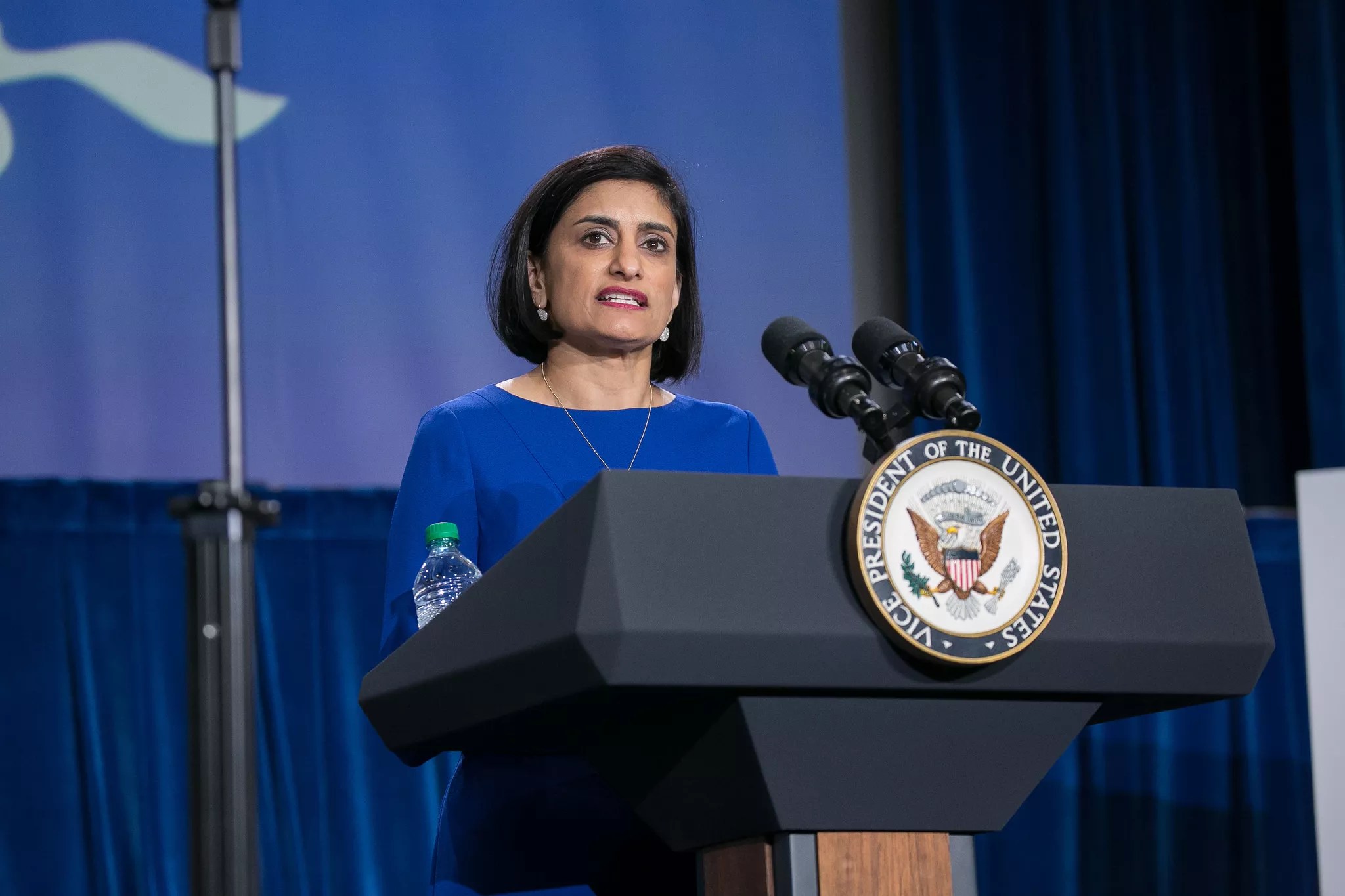
Office of the U.S. Secretary of Health and Human Services

Audio By Carbonatix
Florida currently ranks 45th of the 50 states when it comes to the number of residents living without health insurance. It’s 48th in health performance.
Now the Trump administration yesterday agreed to cut Medicaid benefits.
The weird rationale: to see if that “helps” people sign up for Medicaid.
The logic is as cruel and backward as it sounds.
Seema Verma, the current Medicare
Florida, where the government is controlled by Republicans, gave Verma a chance to cut Medicare and Medicaid coverage for the needy – and Verma took that shot yesterday. A few months ago, Florida asked for permission to cut the state’s Medicaid “retroactive eligibility” window from 90 to 30 days – and, in layman’s terms, give poor Floridians less time to get their medical costs reimbursed after the fact. Verma cruelly approved the plan, claiming this would somehow “incentivize” more Floridians to get year-round medical insurance, as opposed to “hopping on and off” Medicaid. The cuts, which will go into effect February 1, don’t apply to children and pregnant women. They are supposed to last until June 30, but the state can request an extension.
“This feature of the demonstration is designed to encourage enrollment as soon as possible, to facilitate receipt of preventive care and other needed services, and to reduce Medicaid costs, with the ultimate objective of improving beneficiary health,” Verma wrote yesterday in a letter to the Florida Agency for Health Care Administration secretary.
As other news outlets, including the Miami Herald, have already noted, the cuts are expected to hit nearly 39,000 Floridians and cut about $98 million from the state’s annual medical budget. Data show cuts like this are a particularly harsh way to deal with the poor: Surveys from the Kaiser Family Foundation show that most people forgo health coverage because they simply cannot afford it. In a 2016 national Kaiser survey, just 2 percent of respondents said they didn’t enroll in coverage because they felt they “didn’t need” it. Roughly half of the respondents said the cost was too high, and the other 48 percent or so said that they were victims of Medicaid cuts, employer insurance-plan cuts, or had lost their jobs. These are not people who are “choosing” to go without insurance. Treating them this way is just plain
Verma’s letter noted that her office received 150 comments about the proposed benefit cuts. All were negative, but Verma chose to ignore this. Commenters said they were worried the cuts would hurt poor, elderly, and disabled people. Her solution is to just push the state, doctors, and hospital providers to encourage Floridians to sign up. Here’s an excerpt from the letter:
The federal comment period for the request to waive retroactive eligibility was held from May 4, 2018 through June 5, 2018. CMS received a total of 225 comments, of which 150 were unduplicated. All of the comments were in opposition of the waiver of retroactive eligibility. Commenters’ main concerns were about the harm to patients, worsened health outcomes, financial hardship on beneficiaries and providers, and the asserted failure of the proposal to promote Medicaid objectives. Some commenters voiced concern about the waiver request not increasing access to care or testing innovative approaches to delivering care.
Some commenters stated that waiving retroactive eligibility would further impede access to timely care and services across the continuum of care and have a negative impact on an already vulnerable population. Some commenters stated that the waiver would negatively affect access to critical health care services for Florida’s most vulnerable populations, including the poor, the disabled, and the elderly.
CMS addressed these comments by requiring the state to have a robust outreach and communication strategy to help ensure beneficiaries, providers, and other stakeholders are familiar with how to apply for Medicaid and understand the importance of applying as early as possible. Florida will provide coverage effective as of the first day of the month of application, which will help mitigate some of the concerns raised by the commenters.
According to the U.S. Census Bureau, Florida’s uninsured rate increased between 2017 and 2018. More than 2.6 million Floridians – almost 13 percent of the state population – went without health coverage at some point in 2017. Those 2.6 million people almost certainly did not gleefully choose to live without healthcare. The state, in general, became a harsher and more difficult place for the poor during the last eight years under Gov. Rick Scott, who has gone out of his way to trim insurance access for the poor during his tenure. And now, before Scott leaves the governor’s office, his state will make life that much worse for the sick and needy.